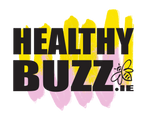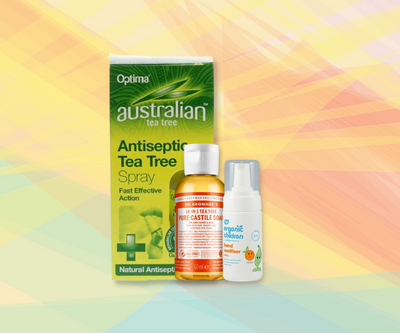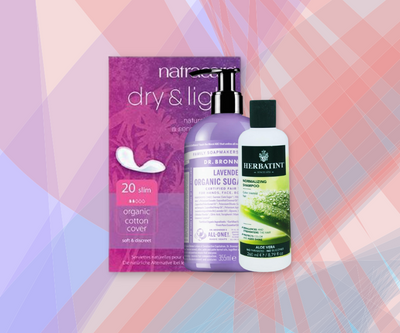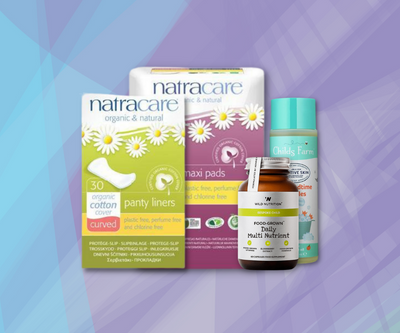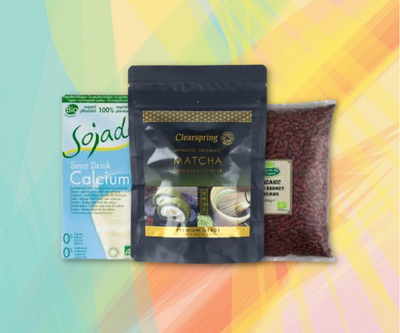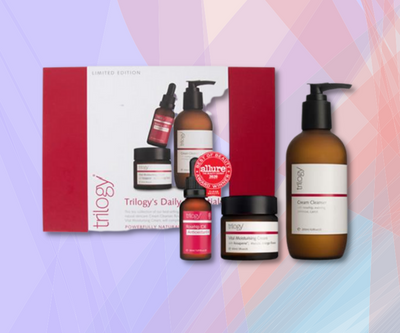Equitable supply chains support small-scale farmers worldwide
Coconut Oil – Sri Lanka

Serendipol – the world’s foremost source of fair trade organic coconut oil
Serendipol’s Organic and Fair Trade Coconut Oil Project was inspired by Dr. Bronner’s involvement in helping to rebuild cottage industries in the aftermath of the devastating tsunami of 2004. Serendipol started in 2007 with an overgrown, abandoned coconut mill, two shipping containers as office space and the determination of our Sri Lankan partners and a few experienced and highly motivated friends. In those early years, many—including would-be farmers and employees—considered the project to be somewhat of a “fly-by-night operation.”
Nine years down the road, Serendipol has more than 1,260 farmers farming 20,000 acres, 300 employees, and 30 million coconuts processed a year. Workers in Serendipol’s oil plant enjoy working conditions and compensation uncommon in the industry, with opportunities for personal and professional development, and a respectful, participatory management style that increasingly attracts professionals in accounting, engineering, agricultural services, and administration who want to contribute to responsible rural development in Kuliyapitiya.
Serendipol’s factory also showcases the potential of a great renewable resource, the coconut palm. All byproducts have value-added uses: the coconut husks are sold and then processed into fiber for rope, doormats, and erosion control; the shells are burned for energy in our boiler or sold to produce charcoal and activated carbon; the seed cake is sold for animal feed and food; some of the coconut water is sold to a local exporter; and the balance is treated biologically and used for irrigation in the company’s garden. Other than common packaging waste, the factory leaves no waste behind.
The fair trade premium paid by Dr. Bronner’s and other customers has funded composting operations, critical medical equipment for clinics, school renovation and vocational training for disadvantaged adolescents, restoration of water reservoirs overgrown by invasive plants (plant waste used in compost), and vital infrastructure like bridges, road and electricity to connect rural villages.
Coconut Oil – Kenya & Samoa

Kwale Coconuts – a growing collaboration on the Kenyan coast
By 2012 our growing sales of soaps and coconut oil meant that we needed to find additional sources of fair trade and organic coconut oil. We saw potential in a project on the southeastern Kenyan coast that had been started by the U.S. charity Asante Foundation. With our sister company SerendiKenya we worked to transform the project into a high-quality producer of fair trade & organic coconut oil. Today, some 1,400 organic smallholder farmers supply the project, and the modernized oil mill in Ukundawe employs 65 staff.
Farmer training is a key reason for the project’s success. Coconut fields in Kenya tend to be small, and weak local demand for coconuts means that farmers often sell to traders from neighboring Tanzania at low prices. So, farmers appreciate having a reliable customer in Dr. Bronner’s. We also support them through farm diversification and land improvement. And the fair trade premiums farmers receive have funded coconut seedlings, a water well for a local hospital, and desks for the local elementary school, with many more projects to come.
Because of the limited local nut supplies and the comparatively low output of the project, we decided in 2015 to transfer ownership to a young American entrepreneur living in Kenya who was interested in expanding the project under the name Kwale Coconuts. Dr. Bronner’s remains as the main customer and supports the project in several areas: agriculture, production technology, marketing – and has for the first time transferred the project to a local partner who continues the operation in our spirit.
SerendiCoco Samoa – a joint venture to revive the Samoan coconut industry
By the 1990s the once thriving coconut industry in Western Samoa had lost its competitiveness. Today, much of the domestic coconut crop simply goes uncollected. Under the name of SerendiCoco Samoa we recently formed a joint venture with a local experienced producer of conventionally-grown coconut copra oil. The joint venture supports farmers in their conversion to organic practices and will use the existing production infrastructure to produce fair trade and organic coconut oil.
Interest is high among farmers, who see the benefits of selling nuts at a significantly higher nut price and of receiving support in replanting senile coconut trees. Production will commence in 2017. Considering Samoa’s small population of about 150,000 and its dependence on remittances from relatives living abroad, the project has the potential to shift much of the domestic coconut production to fair trade & organic principles – and to have a significant beneficial impact on the country’s economy.
The Samoan government, along with donor agencies, have gotten behind the project, which will facilitate large-scale tree replanting. Projects funded through the fair trade premium will address educational and health care issues in the often remote villages, with a focus on youth employment.
Palm Oil – Ghana
Serendipalm – sustainable palm oil from smallholder farms in Ghana. Photo courtesy of Rapunzel Naturkost.
Palm oil is a primary ingredient in Dr. Bronner’s bar soaps. It gives our bars their hardness, and balances the lathering power of coconut oil while keeping the soap from softening and dissolving too quickly. With rapid expansion of oil palm plantations in Southeast Asia causing large-scale environmental degradation and social deprivation, it was imperative that we find a source for palm oil that did not cause new deforestation or endanger crucial habitats.
We began our search for a sustainable and socially responsible source of palm oil in 2006. With support from the NGO Fearless Planet, we found partners in Ghana’s rural Eastern Region near Asuom. Serendipalm, our Ghanaian sister company, built a small-scale palm oil mill using traditional processes, but with better facilities and more efficient, safer equipment. We then began recruiting local smallholder farmers for conversion to organic practices.
Since the mill began production in 2008, Serendipalm has become the world’s largest fair trade and organic palm oil project working exclusively with smallholder farmers, and the largest local employer in an area that has traditionally provided few reliable jobs. The 200+ workers in Serendipalm’s oil mill, primarily local unskilled women, enjoy working conditions and compensation unheard of in other small palm oil mills. Serendipalm also continues to attract professional staff to Asuom—agricultural engineers and scientists, as well as accounting and administration professionals who appreciate the company’s participatory style of management. They have chosen to live in the countryside, where they can now earn a living while making a difference.
Serendipalm buys palm fruits from over 635 family farms with oil palm plots averaging seven acres in size. Farmers are paid fair prices plus an organic premium for their palm fruits, provided with mulch, manure and training on organic agriculture to improve soil fertility and profitability, and offered interest-free loans for more productive oil palm seedlings. The fair trade premiums paid by Dr. Bronner’s and other customers have been used for a range of community development projects: water systems, public toilet facilities, a maternity ward and nurses’ quarters, a pedestrian bridge, lighting, school supplies, mosquito nets to protect against malaria, and “green islands”— the planting of trees in its host villages.
Serendipalm now supplies FTO palm oil to Dr. Bronner’s and several European fair trade companies, including GEPA and Rapunzel. With growing demand for our palm oil, we are now expanding operations — to the benefit of farmers, workers, and the local community. We are also adding cocoa to the project’s range of products since many of Serendipalm’s suppliers also grow cocoa and would like to abandon pesticides and shift to organic production.
Olive Oil – Palestine and Israel

Olive Oil from the Holy Land
In honor of our Jewish ancestry and our commitment to promoting peaceful coexistence, our olive oil comes from the Holy Land, supplied by farmers in both Palestine and Israel. Organic olive oil is what provides the velvety smoothness in Dr. Bronner’s Pure-Castile Soaps.
In late 2006, we began sourcing 90% of our olive oil from Canaan Fair Trade, a company founded by Palestinians near the West Bank town of Jenin. Their objective was to improve the economic situation of olive farmers in the West Bank through fair trade with customers in the West, while promoting peaceful coexistence with Israel. Canaan works closely with the Palestine Fair Trade Association (PFTA) and now purchases oil from 1,700 smallholder members. Dr. Bronner’s helped Canaan plan for and fund the project’s organic and fair trade certification by the respected Swiss certifier IMO. This boosted the project’s visibility and provided access to high-end markets in Europe and the U.S.
In the past, the export of Palestine’s high-quality olive oil had been virtually impossible due to their landlocked situation and competition with subsidized and freely-traded oil from Mediterranean countries. But now, PFTA growers are guaranteed a minimum price to cover costs of production, and receive a combined organic and fair trade premium of 25%. Canaan donates additional funds for education, tree planting, and logistics projects.
Since 2009, the trading relationship with Dr. Bronner’s and other buyers has helped Canaan expand and become a symbol of hope for sustainable and fair economic development for olive farmers and their communities. The company also produces and exports other traditional Palestinian foods, such as couscous and dried tomatoes, all of which allow Palestinian growers to trade directly with expanding, high-value markets for organic and fair trade materials while redeveloping their traditional livelihoods.
The balance of our olive oil (10%) comes from Israel. Sindyanna, a fair trade business run by Jewish and Arab women in Israel, supports Arab-Israeli farmers and workers. In light of the vision of peace that the olive branch symbolizes, we are also sourcing olive oil from the Jewish-Israeli Strauss family farm in Israel, a pioneer in organic olive oil production.
Palm Kernel Oil – Ecuador

Natural Habitats: sustainable palm kernel oil from Ecuador
We use organic palm kernel oil in our liquid and organic pump soaps to produce a rich and copious lather. Palm kernel oil is pressed from the seed of the palm fruit, and like palm oil, is too often grown without care for the land or respect for local communities. That’s why we’ve partnered with Natural Habitats to obtain fair trade and organic palm kernel oil from Ecuador, where family farmers grow oil palms sustainably, and receive a fair price for their palm fruits. Natural Habitats is committed to environmental practices that sustain the land and its people, and to a participative production model that ensures economic and social benefits for farmers and workers.
Like Dr. Bronner’s existing fair trade coconut and palm oil sister companies, Serendipol and Serendipalm, Natural Habitats is certified under IMO’s “Fair for Life” program, the most rigorous fair trade and sustainable certification in the world.
Ethyl Alcohol – Ecuador

CADO: fair trade and organic alcohol from the Ecuadorian Andes
Ethyl alcohol (ethanol) is the primary ingredient in our Organic Hand Sanitizer. Our medical-grade alcohol is made from sugar cane that has traditionally been produced by small farmers in the steep hills of the Bolivar and Cotopaxi provinces of Ecuador.
Since 2003, the Rural Forestation and Progress Network Corporation has worked with small farmers there and has provided training and appropriate technology for organic farming, alcohol purification, and better environmental practices. They have also helped five small cooperatives organize themselves into a consortium, the Sweet Organic Agri-Artisanal Consortium (or CADO in Spanish). CADO pays its members a fair price for organic alcohol and contributes a fair trade premium which goes into community development projects. More than 250 families now have the chance to improve their quality of life without losing their traditional way of life or harming the environment.
Mint Oil – India

Creation Biotech: putting regenerative farming into practice
Mint oils are our most used essential oils—their cooling properties are what make our peppermint soaps and All-One Toothpastes so refreshing, and they give our peppermint soap its famous tingle!
Dr. Bronner’s uses a blend of oils from two mint species, peppermint (mentha piperita) and corn mint (mentha arvensis). Since 2004, both species were grown for us at smallholder projects in India’s Uttar Pradesh state, some 250 miles east of Delhi. The original project was operated by our partner company Earthoil in the UK, followed in 2013 by our sister company Serendimenthe. When we became aware of financial irregularities in 2015, however, we decided to close the company and to offer four of our staff—gifted, motivated and reliable agricultural engineers—an opportunity to build their own company.
The project now involves over 700 smallholder farmers who are converting their farms to organic practices and certification. Their small fields, typically less than 2 acres, are farmed in rotation, using 2 or 3 different crops every year. Through decades of intensive cultivation, including use of chemical fertilizers and frequent plowing, the silty/loamy soil has been depleted and contains little organic matter (humus). One objective we share with our partners is to regenerate the soil through the supply of compost, the use of cover crops and conservation tillage.
An existing vermicompost operation will soon be replaced by a much larger composting plant. Its output will allow a swift increase in soil carbon content. This in turn will increase soil fertility and make the soil less susceptible to increasingly unreliable water supplies. Intercropping with legumes will help increase soil nitrogen content naturally. A large-scale planting program for fruit trees, shade trees and other beneficial trees, such as neem, a source of natural pesticide, is under way.
Currently these activities are being supported by the fair trade premium. In the long run, farmers will pay for compost as they recognize its value. In addition, since 2015, the fair trade premium has funded the installation of toilets in the homes of many farmers, public water pumps for clean drinking water, and medical camps to provide basic medical care to villagers.
Avocado Oil – Kenya

Olivado: fair trade and organic avocado oil
Organic avocado oil provides the rich moisturization in our Organic Lip and Organic Magic Balms. Since 2009, we’ve sourced our fair trade and organic avocado oil from the Olivado project in the hilly regions of central Kenya where most of the crop is grown by thousands of small farmers, 70% of them women.
Olivado established a multi-year project there to educate and train these family farmers in organic, sustainable growing techniques. In cooperation with Dr. Bronner’s, Olivado also applied for and obtained the Fair for Life (fair trade) certification from IMO.
The guaranteed market and stable prices have increased the incomes of local farmers, raising the standard of living for themselves, their families, and their communities. Olivado currently has 1,060 farmers who work more than 1,730 acres as part of its Organic and Social Fair Trade Program, and the local factory employs approximately 25 full-time workers with up to 80 additional part-time workers.
Sugar – Paraguay

Azucerara Paraguay: fair trade and organic sugar
Organic fair trade sugar gives our organic pump soaps a rich caramel color and sweet scent, and keeps skin nourished, hydrated, and smooth.
We source our sugar from Azucarera Paraguaya, whose mission is to provide the highest quality sugar while being stewards of the land and its people. In adherence with strict organic standards, the sugar cane fields are green cut and are not burned or treated with herbicides or synthetic fertilizers. The mill provides education and healthcare assistance to its employees and sugar cane farmers, while paying growers a fair price for their crops.
Tea Tree Oil – Kenya

KOOFA – fair trade organic tea tree oil from the Kenyan Highlands
The tea tree oil in our tea tree liquid and bar soaps comes from a fair trade and organic project in the foothills of Mount Kenya, directly on the equator north of Nairobi.
Founded in 2005 by our UK partner Earthoil, the project first recruited smallholder farmers willing to try out a crop new to the area and convert to organic practices. More than 500 farmers are now members of the project and have organized as the Kenya Organic Oil Farmer’s Association (KOOFA). Earthoil buys the twigs and leaves of the tea trees and steam-distills them at its facility in Nanyuki where workers enjoy fair and safe working conditions not commonly found in the area.
In addition to a fair cost-based price that guarantees a profit, farmers receive a 10% organic premium. Buyers, including Dr. Bronner’s, also pay a 10% fair trade premium, and farmer representatives democratically decide how the funds should be allocated to benefit the whole community. Though annual fair trade premium revenues are still modest, the Fair Trade Committee has decided to sponsor seven children from very poor families, funding all four years of their secondary education. Now the group is shopping for a one-acre parcel of land to build a community hall that will house a small library and computers with internet access. The hall will also be rented out to generate revenue for the group’s activities.
